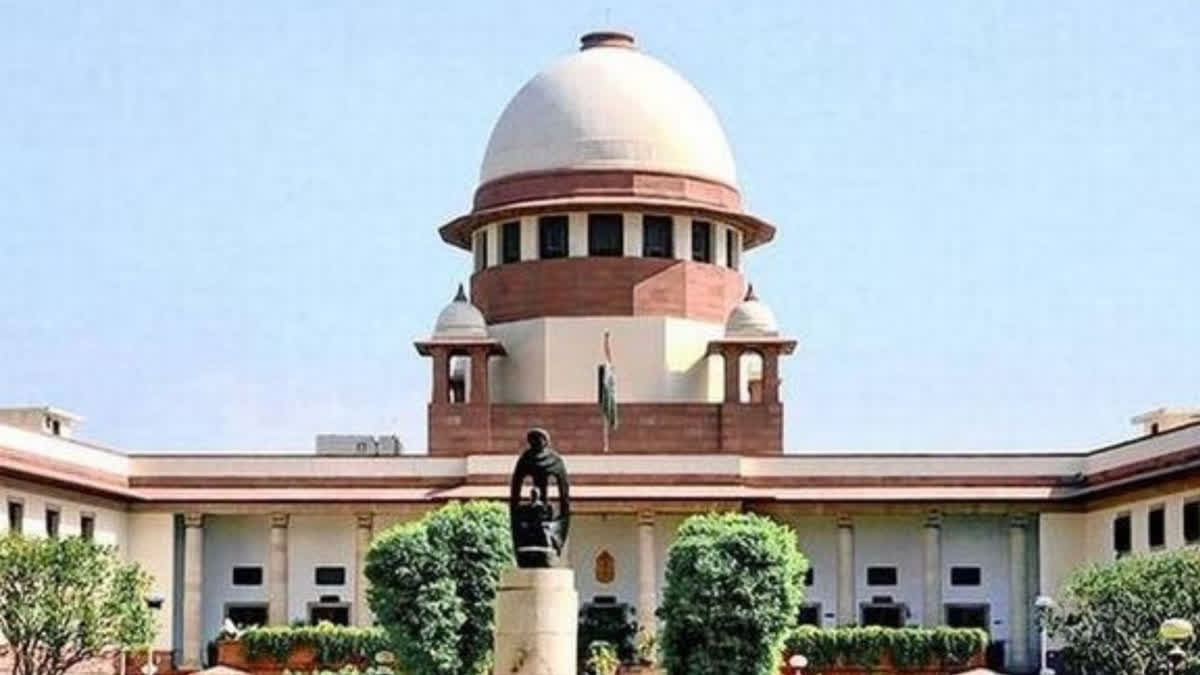New Delhi : The Supreme Court Wednesday observed, could it be the position in law that even though the controlling voice is not of the minority yet it should be treated as a minority education institute under Article 30, because the minority has some element of presence on the managing body, and would some element of presence in the managing body suffice? The apex court posed this query while hearing the hugely disputed minority status of Aligarh Muslim University (AMU).
During the second day of the daylong hearing, a seven-judge bench headed by Chief Justice of India D Y Chandrachud observed that the mere fact that some part of administration of an educational institution is also looked after by non-minority officials does not “dilute” its minority character.
The bench -- which also comprised Justices Sanjiv Khanna, Surya Kant, J B Pardiwala, Dipankar Datta, Manoj Misra and Satish Chandra Sharma – stressed that Article 30 of the Constitution says that every minority, whether religious or linguistic, shall have the right to establish and administer educational institutions of their choice.
The bench said it cannot be to a point where the entire administration is in non-minority hands and told senior advocate Rajeev Dhavan, representing AMU, that he had made an important point on the interpretation of Article 30 about who could establish and administer minority educational institutions.
CJI said, “Dr Dhavan, what is worrying is that the test is of management for the purpose of administration, we take your point that as a university governed by law, you have to induct people, representatives of various stakeholders in the university – teachers, students, faculty…”
The bench further queried Dhavan, even though the controlling voice in the administration is not that of the minority yet it must be treated as being administered by that minority. “For treating an educational institution administered by a minority, the controlling voice in the administration might not be of minority, or could it be the law, even though the controlling voice in the controlling voice is not of the minority yet it should be treated as a minority education institute under Article 30, because the minority has some element of presence on the managing body, and would some element of presence in the managing body suffice?”, CJI queried Dhavan. Dhavan replied all vice-chancellors have been Muslims, therefore they have not lost control entirely to secular forces.
A contention has been made that since AMU is getting aid from the government, it cannot claim to be a minority institution. On this aspect, the bench said no institution can exist without a grant of land and the existence is dependent on the lease from the government, and second, it may not be able to function without aid from the government.
The bench noted that all these aspects may be relevant to the existence of an institution, but they have no bearing on the establishment of the institution. AMU has submitted that it was established by the Muslim community for educating and empowering the community and Dhavan emphasized that Azeez Basha verdict is “no longer a good law” and referred to the 1981 amendment Act which restored AMU’s minority character.
Senior advocate Kapil Sibal, representing Old Boys Association, said much water has flown since the Basha judgement was delivered. Sibal said Under Article 30, I can set up a school, college, university, now you say I have a right to set up a university but you say if I go to the statute, UGC would say I am University, I lose my status, it’s not understandable, the very logic is not understandable. “I want to ask myself a question… what is the right that the minority has today? I have to comply with all standards. I can’t appoint a teacher without an appropriate qualification….”, said Sibal, adding that the institution that I have established, I just want a little reservation and they want to deny that also.
Sibal stressed that if there was any undue interference in the functioning of the university, then it has the right to challenge it. “I don’t stand here for Aligarh Muslim University. I stand here for the diversity of the constitutional ethos of this country and I plead to your lordships don’t allow that to be destroyed…..”, said Sibal.
Citing government’s contention against the 1981 amendment, Sibal said the executive can’t go against a parliamentary statute. Sibal also pointed out that Muslims in India are worse than Scheduled Castes in terms of education and they can only be empowered through education, while defending minority status of the Aligarh Muslim University (AMU).
The apex court will continue to hear submissions on Thursday.
A constitution bench is hearing pleas by AMU and others, where it will decide on the question whether an educational institution created by a parliamentary statute enjoys minority status under Article 30.
In 2005, AMU had reserved 50% seats in postgraduate medical courses for Muslim candidates by claiming it to be a minority institution, which was set aside by the Allahabad High Court. In 2006, Centre and AMU challenged the high court’s decision before the Supreme Court. In 2016, the Centre withdrew from the appeal contending that it does not acknowledge the minority status of the university.
The top court had on February 12, 2019 referred to a seven-judge bench the hugely contentious issue of the minority status of AMU. A similar reference was also made in 1981. In 1967, a five-judge constitution bench in the S Azeez Basha versus Union of India case in 1967 held that since the Aligarh Muslim University was a central university, it cannot be considered a minority institution. The university got back its minority status when Parliament passed the AMU (Amendment) Act in 1981.
- " class="align-text-top noRightClick twitterSection" data="">


